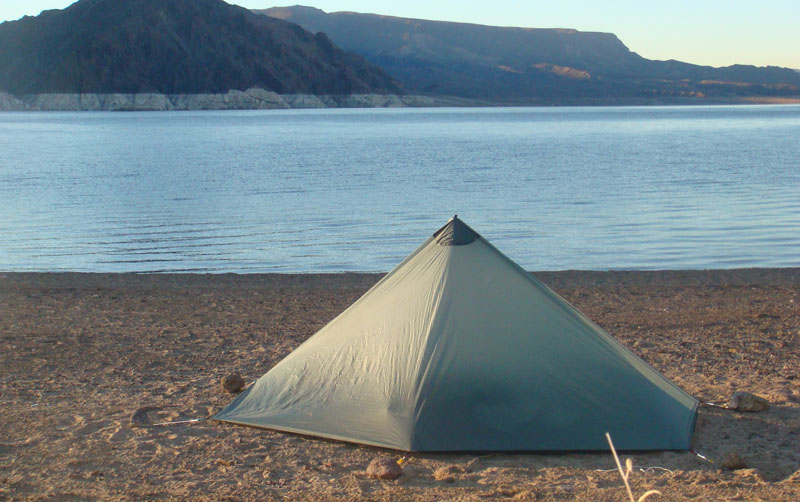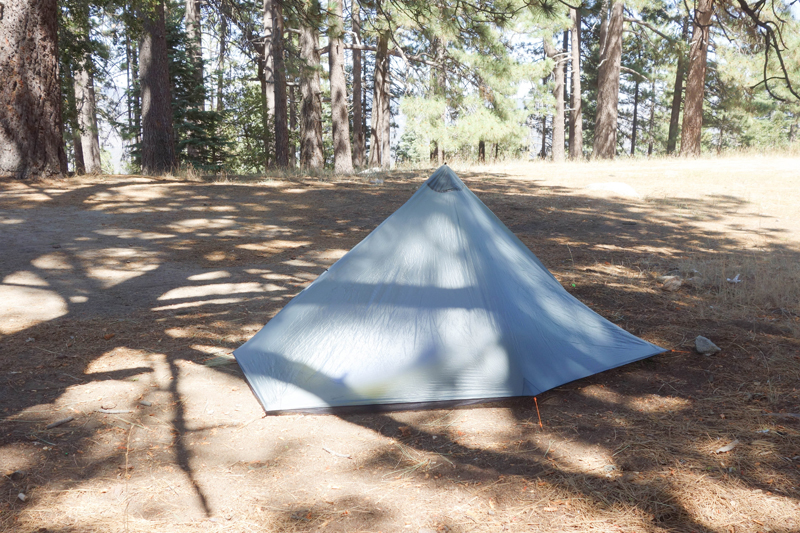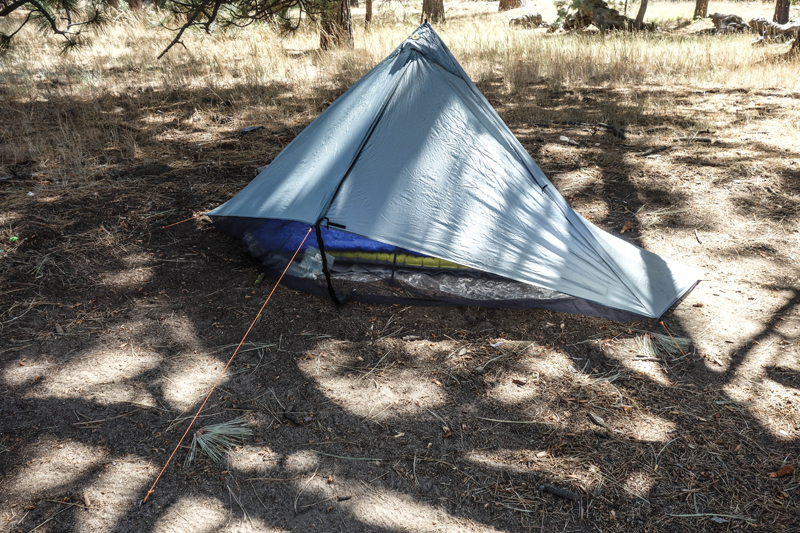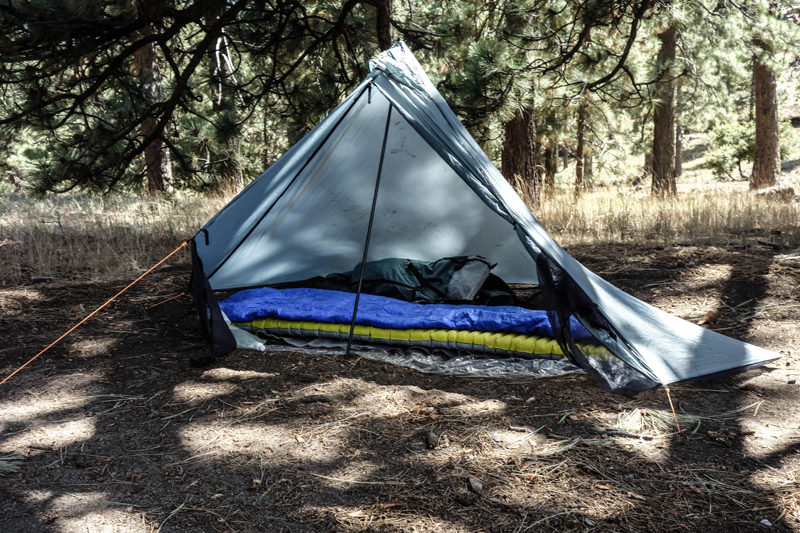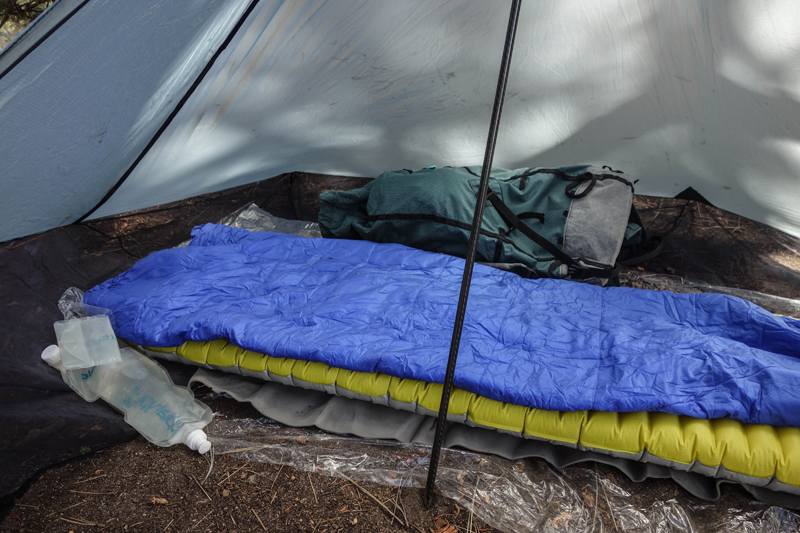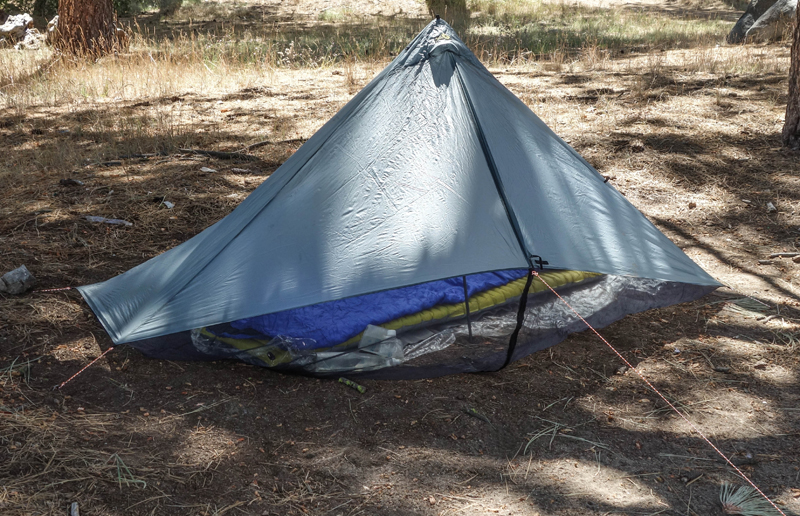A while back I posted about Dave Chenault’s Pyramid Shelter article. At that point it dawned on me that I have not discussed this shelter previously. The Wild Oasis seems to be a shelter that often gets little love. It has been around for quite a while; I bought mine in 2008. But I don’t see many people talking about it these days. I typically only used mine for those days when I expected a lot of flying insects. But since I decided to do a review, it occurred to me that I should use it more often.
I have used the Wild Oasis in rain, sleet, and light snow and it has kept me and my gear completely dry. When the temperature is low enough with the proper dew-point there will be condensation, as we exhale about 1 liter of water vapor each night when sleeping. Yes, a lot of reviewers complain about condensation, but for the skilled and experienced backpacker, condensation is easily managed and not a problem.
The shelter is not the best for shedding wind as the sides flap but with a proper pitch it is secure; it is subject to condensation; the netting seems to keep bugs out (bugs don’t like me so I’ll give the shelter some credit); doesn’t have a lot of interior space; it is not very good at shedding snow; and generally is not great at any one thing. But it does most of what backpackers want well, and at under one pound the package is a damned good shelter. Many hikers have done long multi-month trails in the US using a Wild Oasis with good results and satisfaction. So all-in-all it is actually a great shelter.
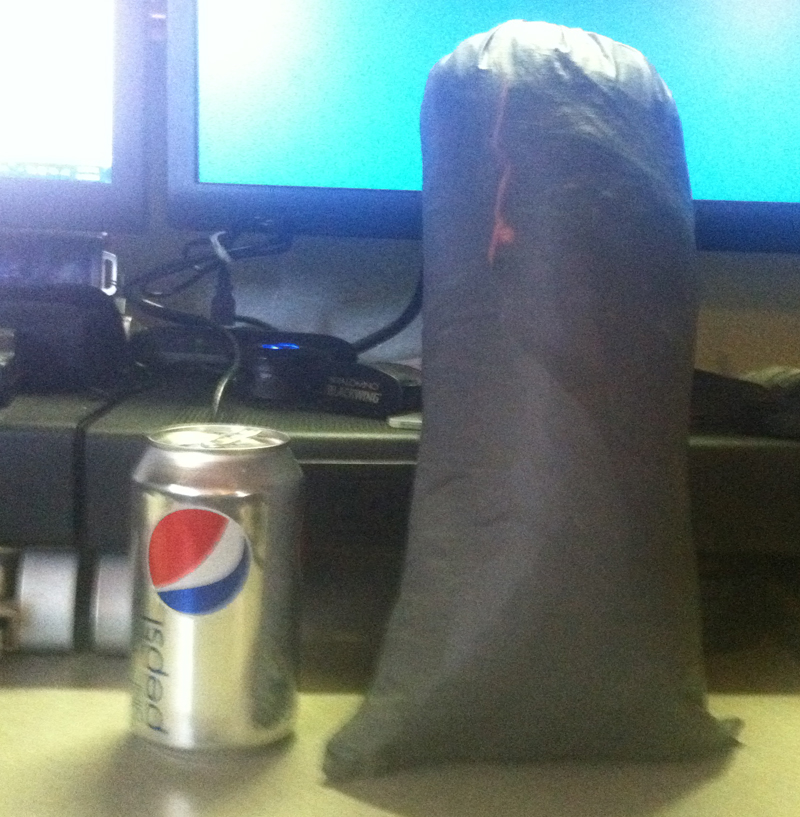
The Wild Oasis is a 5 sided shelter that is a “Mid” type of shelter, a modified pyramid if you please.
- It is set up with a single hiking pole, or you can purchase a 45” carbon fiber pole from the manufacturer.
- The shelter can be set up using different pole heights, depending upon the conditions.
- It includes a #3 YKK full zipper to completely enclose the shelter in bad weather.
- For bug protection, there is an 18” full skirt made from No-See-Um material.
- Stated floor coverage is 35 square feet. It is probably not the shelter for people over 6 feet tall.
- Mine weighs 14.43 ounces without stakes, but with guy lines and stuff sack, and after sealing the seams. The Six Moon website quotes a current weight of 13 ounces.
- There is a vent at the top of the shelter.
- Construction is 300D Silicone Nylon.
- Comes with a stuff sack and guy lines. Tent stakes are not included (6 required).
The shelter is a singled-skin floorless shelter, which like all tarp-type shelters is prone to interior condensation when the conditions are ripe for this. This is not a design fault, but typical of single wall construction.
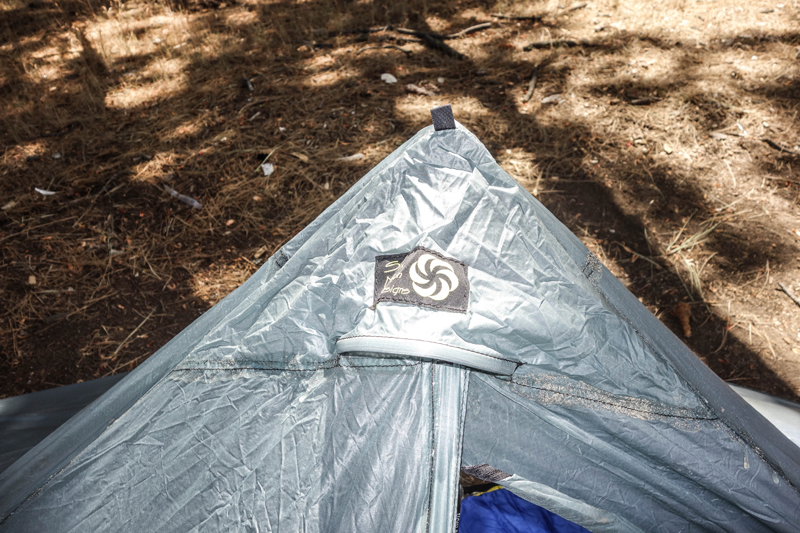
It does keep insects out — at least most of them. There aren’t many shelters under 16 ounces that can do this unless you opt for an expensive Cuben fiber shelter.
SET-UP AND LIVING SPACE
The shelter is much more livable if you don’t pitch the sides to the ground, but use a longer pole set-up. This will reduce the floor space, but the extra interior height more than offsets the reduction in real estate. One thing I have not done is to pull out the entry out and up, with a 2nd pole, to create an open “beak.” This will create more ventilation and a little more under roof area, but if I want a more open feeling I just unzip the entrance and roll back the sides. Of course this wouldn’t be ideal if you are fighting with biting insects.
With a little practice the shelter can be set up in under a minute. Many articles I have read on the Web have the authors complaining about setting it up — setting up a shelter like this takes a little experience and skill — so reader beware of the complaints, the reviewer may not be expert at setting up a shelter.
If you are taller than about 6 feet, this shelter is probably too small for you. At 5’11” I find it has the perfect amount of space for me and my gear.
If you use trekking poles (I normally do not) you can adjust the pole height. Six Moon Designs recommends a 42″ pole for pitching it close to the ground with stakes through the tie-outs or a 45″ inch pole using 16″ guylines at the 5 tie outs, excluding the front tie out. This is 16″ in length before tying a loop at each end of the cord. I prefer a 48″ pole with guy lines about 2 inches longer. This helps the shelter to breath a little better to help reduce condensation.
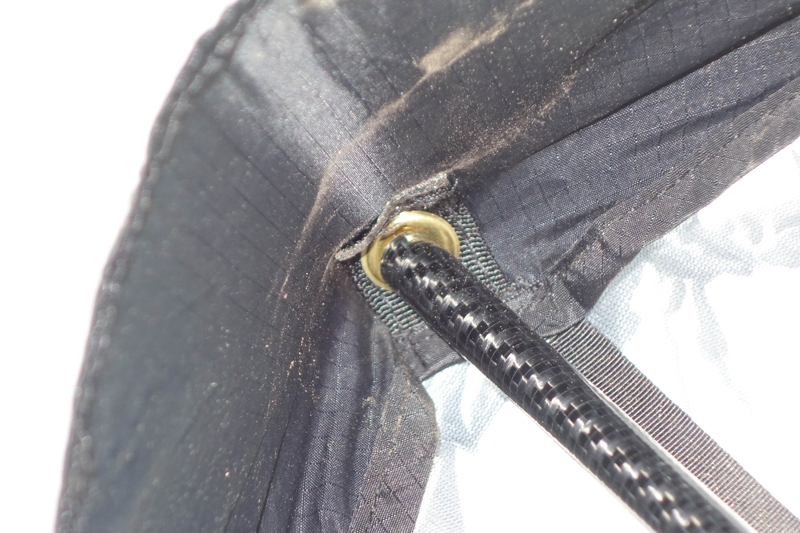
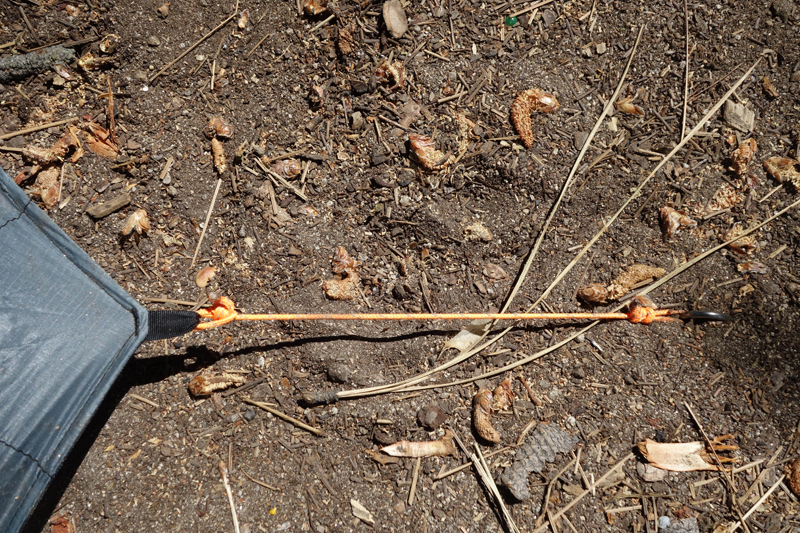
I have found the Gossamer Gear Polycro Groundsheet to be the perfect groundsheet at 40″ X 96″. It is long and wide enough to be placed on top of the bottom mesh of the shelter. At around 1.6 ounces, these sheets are remarkably durable.
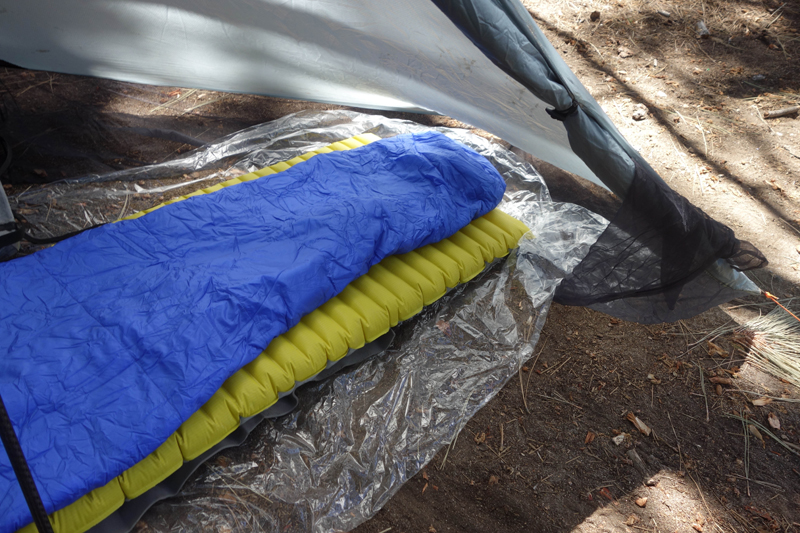
Note the door tie at the right of the picture when you want the door open. I usually leave it open unless bugs are a problem. Properly oriented, the shelter will keep you dry with the door open.
The door flap has a zipper that goes from the top of the shelter to the bottom, and then continues to zip the mesh bottom together. There are two zipper tabs (outside and inside).
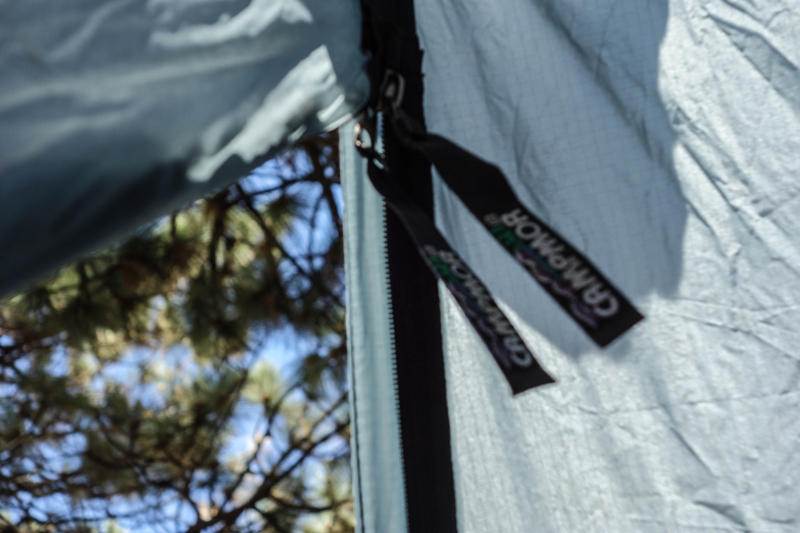
MESH
The mesh does keep pesky flying insects out, at least in California. For those who live in Alaska or similar locales, you may get different results. Some people feel the mesh curtain reduces air flow and contributes to more condensation. I don’t buy that. I have found the condensation similar to other shelters. With any mesh, you are apt to poke tiny holes in it over time. Not something I would worry about. The bigger worry would be collecting mud or frozen snow on the mesh.
Some reviewers complain about the Velcro closure at the bottom of the door flap catching on the mesh and damaging it. To be honest, I don’t know how they do this. I have never had a problem. When packing the shelter, I zip the door flap close and secure the Velcro.
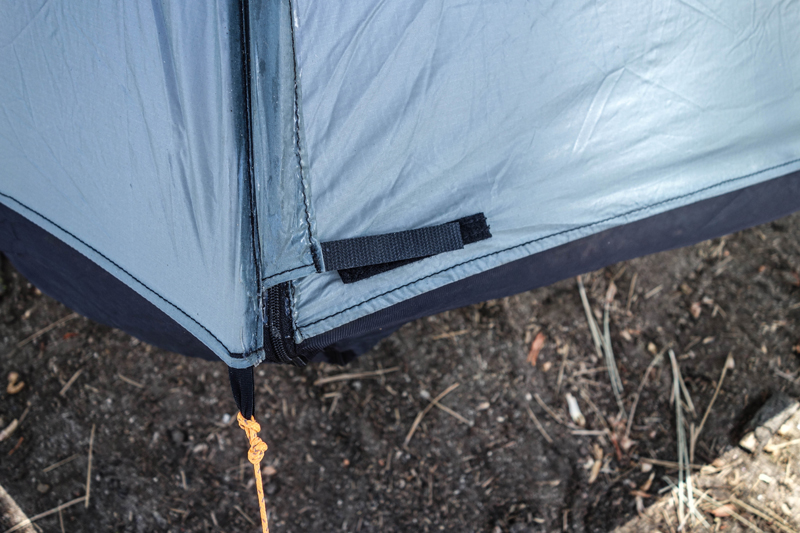
I have done a few trips with the Wild Oasis in rain/sleet/snow conditions; once all were thrown at me on a single night. Surprisingly the mesh didn’t collect much mud, dirt or grime, and I was able to shake off most of the frozen moisture. But this isn’t a four season tent, so it is not appropriate for winter.
STORM WORTHINESS
The shelter does a fairly good job in mild winds, but it does flex a lot. That is common with a single pole set-up. However, adding a 2nd exterior pole would help with this. It sheds rain and light snow well. Below is an example of how a 2nd pole is used on my MLD Trailstar, and you could something similar with the Wild Oasis, but the mesh would hang down and probably allow flying critters to get inside. You could also add additional tie-outs for more guylines. I never bother to do that.
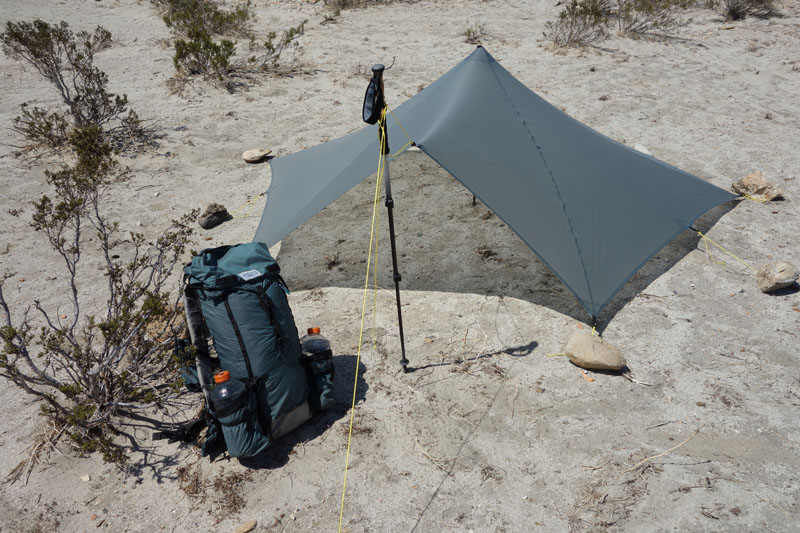
SUMMARY
I like this shelter a lot and don’t know why I quit using it a few years ago. I have started taking it again on some trips.
